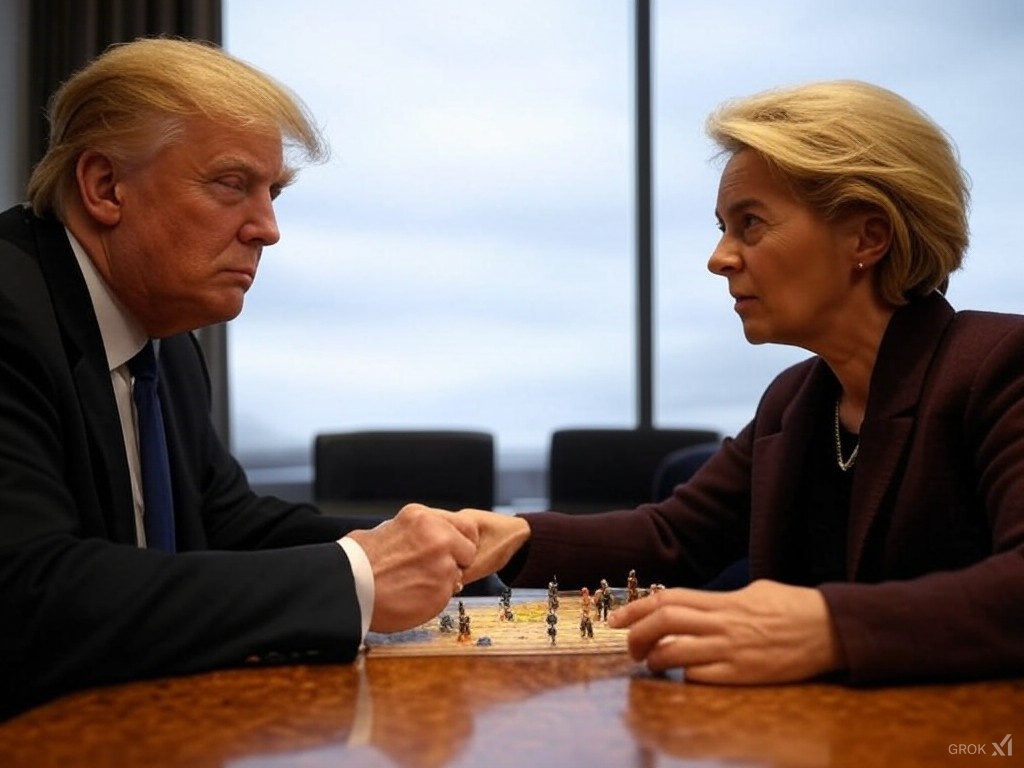American Excitement for Trump brings European Angst

20 January 2025
The inauguration of Donald Trump, marked by the notable absence of European Commission President Ursula von der Leyen, serves as a curious harbinger of the shifting dynamics between the U.S. and Europe. This absence, while not overtly dramatic, whispers of a possible deeper recalibration in transatlantic relations.
While Trump's return has sparked a wave of domestic excitement in the United States, there's a palpable undercurrent of European angst. Von der Leyen's health might have kept her from the ceremony, but her absence speaks to a broader narrative: a potential divergence in interests that might shape the coming four years.
The logic here is simple yet profound: Trump's known inclination towards unilateralism and bilateral agreements could push Europe towards a path of greater autonomy. With America possibly stepping back from traditional roles in global alliances like NATO, Europe might see an urgent need to bolster its own defense mechanisms. This isn't just about military might; it's about strategic independence in a world where America's gaze might turn inward or elsewhere.
In trade, Europe could find itself looking beyond the Atlantic, perhaps towards Asia, where economic growth and shared interests in green technology and innovation beckon. This eastward gaze is not merely economic; it's a strategic pivot, acknowledging that the era where Europe could rely heavily on American support might be waning.
The cultural and historical ties that have long held the U.S. and Europe close now face a test. These bonds, once seen as unbreakable, might bend under the weight of new geopolitical realities where economic interests dictate alliances more than shared histories or values.
Over the next few months, one might witness a subtle yet significant shift in how Europe interacts with the U.S. There could be an increase in direct engagements with individual American states or corporations, bypassing federal channels, leading to a more fragmented but possibly more agile relationship. This could foster new partnerships in technology, climate action, and regional economic initiatives.
Von der Leyen's absence, then, is not just a story of missed opportunity but a silent signal of Europe's readiness to navigate a world where American excitement for Trump might mean less attention to European concerns. The coming months could reveal much about the resilience of transatlantic ties, or indeed, the emergence of a new European identity, less defined by American influence and more by European initiative.
